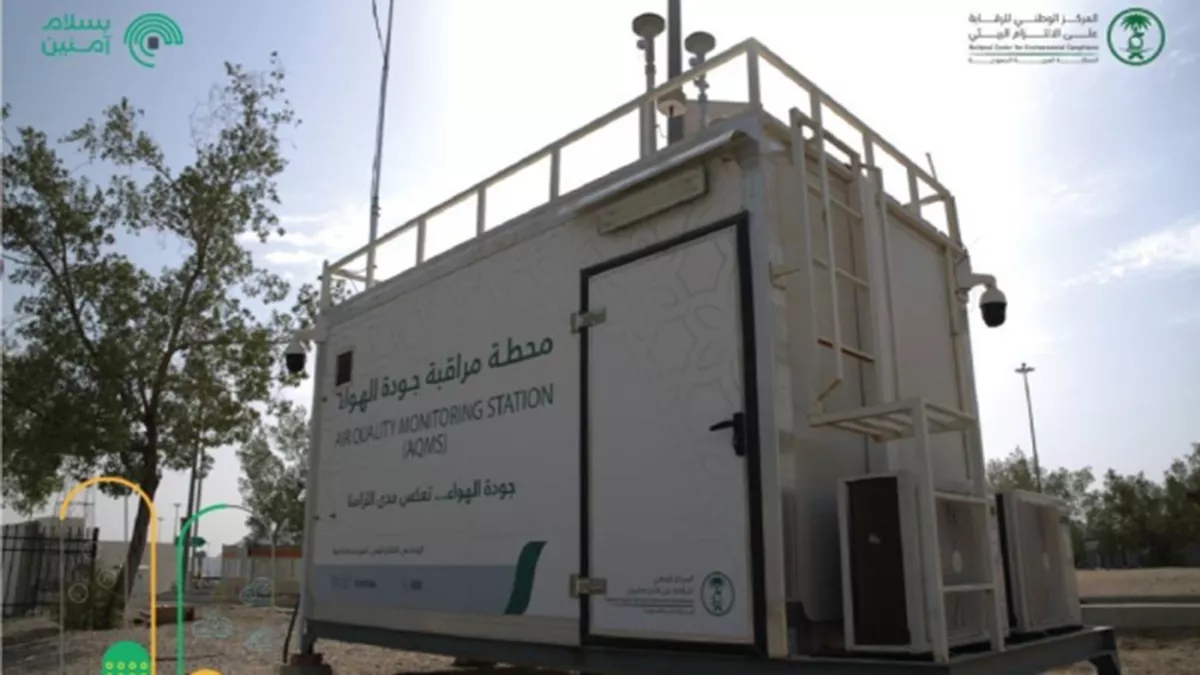NCEC has announced that it achieved the objectives of its intensive campaign to ensure the environmental quality of the pilgrimage site
06 Jul 2023
News
The National Centre for Environmental Compliance (NCEC) has stated that it has met the goals of its rigorous campaign to protect the environmental condition of pilgrimage sites during Hajj 2023. In line with the Environment Law and its executive rules, the sites also included pilgrims' homes in Makkah, Madinah, and the holy sites.
NCEC CEO Eng. Ali Al-Ghamdi has affirmed that the environmental monitoring plan for Hajj would be completed this year by completing 1,350 field visits in carefully selected places across Makkah, Madinah, the holy sites and the highways leading there.
According to him, the findings of these monitoring trips are comforting since health indicators demonstrate that the environment is safe from pollution in the air, water, or soil. The NCEC's activity in Hajj, which begins before pilgrims arrive, is an extension of the year-round activities to check on all enterprises that were given environmental licences and permits to guarantee that they had no negative environmental impact.
Eng. Al-Ghamdi acknowledged that the centre is monitoring environmental compliance for all operations in all development domains that have an environmental impact. He stated that the centre was eager to provide daily indications of air quality since the commencement of the Hajj season, coinciding with pilgrims' travels between the holy sites, and that the monitoring procedure for air quality was done through 18 stations.
Hundreds of environmental professionals carried mobile devices to check quality requirements while measuring. According to Al-Ghamdi, they uploaded data consistent with environmental standards and laws to a central monitoring network, which analysed air contaminants every 5 minutes in accordance with authorised international standards for evaluating air quality. He went on to say that samples were constantly obtained from the soil, torrential streams, and wells that surrounded Makkah and Madinah. "The sampling and analysis will continue even after the end of the Hajj season," Eng. Al-Ghamdi stated.
He stated that any environmental concerns detected before to the Hajj season were addressed by repairing deteriorated locations. According to him, the inspectors pushed offenders to repair the damage they did. The mandate of NCEC involves the prevention of any action that has a direct or indirect influence on the environment, such as contaminating water, soil, and air by changing their natural features.
The NCEC worked for the first time during this year's Hajj season to assess the noise level in the holy sites, control and minimise it in the holy sites by reporting its origins to the competent authorities, with the goal of making pilgrims feel comfortable while conducting their rites. Eng. Al-Ghamdi noted that the centre also accomplished one of its primary goals for Hajj 2023, which was to give environmental advise, by providing awareness messages in eight languages: Arabic, English, Chinese, French, Russian, Persian, Spanish, and Urdu. The pilgrims were able to receive environmental awareness messages by scanning a barcode printed on umbrellas handed to them in Makkah, Madinah, and the holy places.
According to Eng. Al-Ghamdi, the centre continues to give awareness guidelines for government personnel. It developed performance metrics for 18 agencies, with the goal of raising the level of performance for all Hajj employees in the following seasons, he added.
